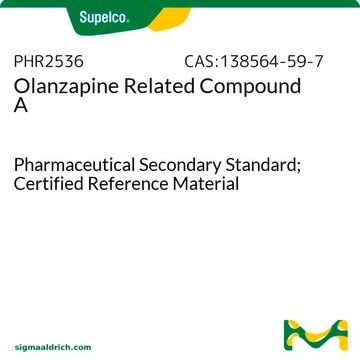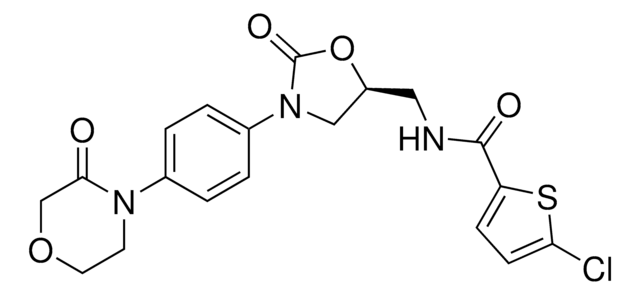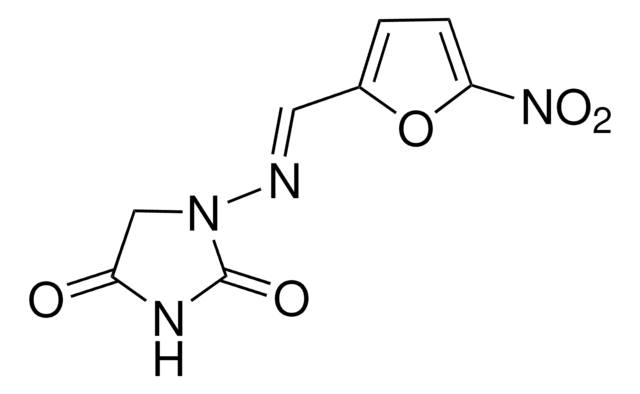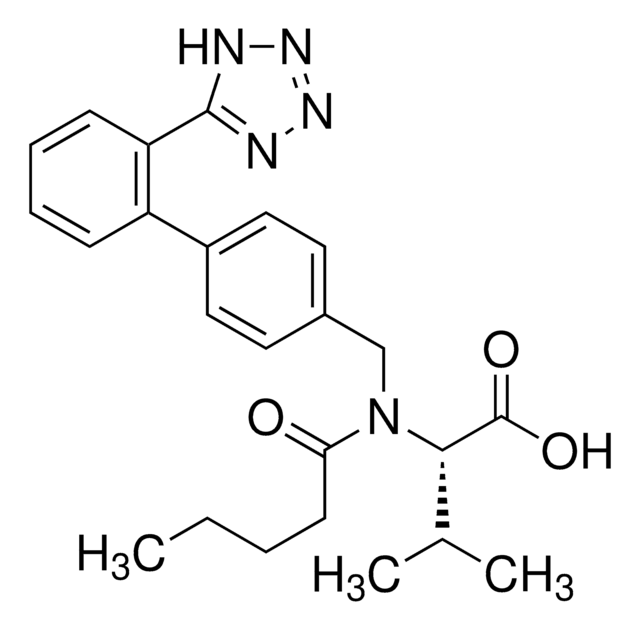1478301
USP
Olanzapine
United States Pharmacopeia (USP) Reference Standard
Sinónimos:
2-Methyl-4-(4-methyl-1-piperazinyl)- 10H-thieno[2,3-b][1,5]benzodiazepine
About This Item
Productos recomendados
grade
pharmaceutical primary standard
API family
olanzapine
manufacturer/tradename
USP
application(s)
pharmaceutical (small molecule)
format
neat
SMILES string
CN1CCN(CC1)C2=Nc3ccccc3Nc4sc(C)cc24
InChI
1S/C17H20N4S/c1-12-11-13-16(21-9-7-20(2)8-10-21)18-14-5-3-4-6-15(14)19-17(13)22-12/h3-6,11,19H,7-10H2,1-2H3
InChI key
KVWDHTXUZHCGIO-UHFFFAOYSA-N
Gene Information
human ... DRD2(1813) , DRD3(1814) , DRD4(1815) , HTR2A(3356) , HTR2C(3358)
¿Está buscando productos similares? Visita Guía de comparación de productos
General description
Application
- Olanzapine and Fluoxetine Capsules
- Olanzapine Orally Disintegrating Tablets
- Olanzapine Tablets
Analysis Note
Other Notes
Related product
signalword
Danger
hcodes
Hazard Classifications
Acute Tox. 3 Oral - Skin Irrit. 2 - Skin Sens. 1 - STOT SE 3
target_organs
Central nervous system
Storage Class
6.1C - Combustible acute toxic Cat.3 / toxic compounds or compounds which causing chronic effects
wgk_germany
WGK 3
Certificados de análisis (COA)
Busque Certificados de análisis (COA) introduciendo el número de lote del producto. Los números de lote se encuentran en la etiqueta del producto después de las palabras «Lot» o «Batch»
¿Ya tiene este producto?
Encuentre la documentación para los productos que ha comprado recientemente en la Biblioteca de documentos.
Nuestro equipo de científicos tiene experiencia en todas las áreas de investigación: Ciencias de la vida, Ciencia de los materiales, Síntesis química, Cromatografía, Analítica y muchas otras.
Póngase en contacto con el Servicio técnico








